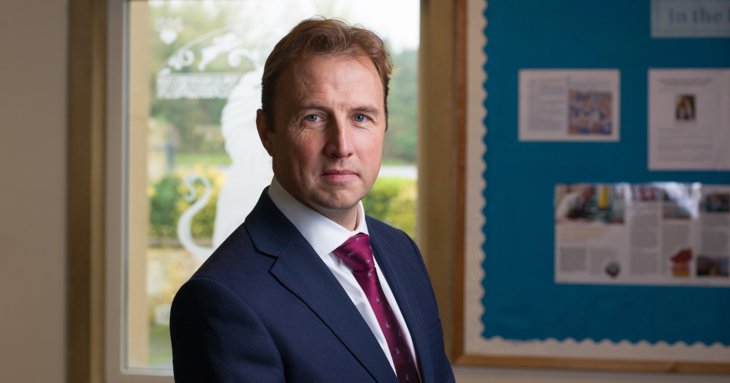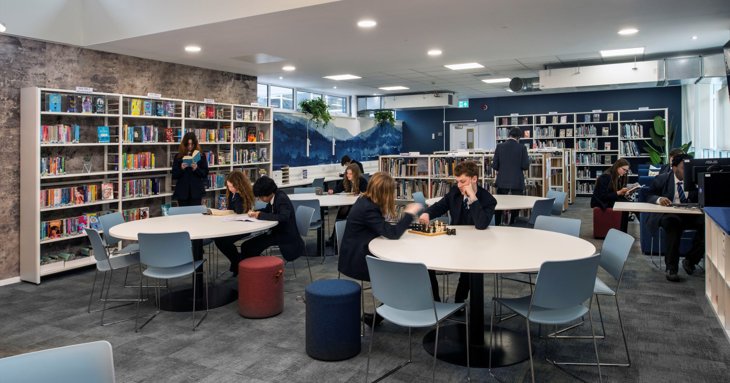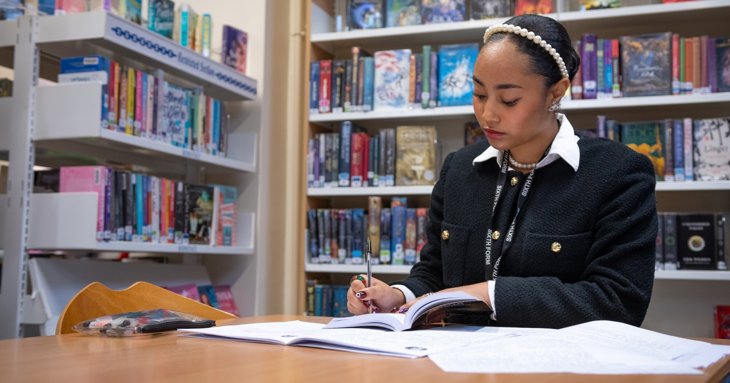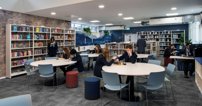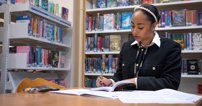Leading the historic Burford School, founded over 450 years ago, Matthew Albrighton took on the role of headmaster in 2021, with over a decade of experience in boarding schools under his belt.
SoGlos caught up with him to find out how he's working to move the school forward, in both its physical structure and its curriculum, and why he believes the pastoral care at school is just as important as the studying.
What is your background in the field of education?
I went to school in Warwick and then studied geography and management at Cambridge University. After a short period working in advertising and marketing, I trained as a teacher in Birmingham and went on to work in boarding schools for 14 years — first as head of geography, then working all the way up to deputy head academic at St Edward's in Oxford.
I have extensive experience of curriculum pathways, including the International Baccalaureate, and I've coordinated and set up a suite of qualifications as an alternative to the GCSE format. I've also acted as a tutor to students in every secondary age group.
What motivated you to pursue a career in educational leadership, and why Burford School in particular?
There's something very special about working in a school that is difficult to pin down. At the heart, it is simply about being with people. Not just the fantastic young students, who bring joy and challenge in equal measure, but the wonderful professionals I work alongside every day. To help steer the direction of an institution with such people within it is a privilege.
I was particularly drawn to the role at Burford because of its philosophy — something within it resonates with my own understanding of education. Extracurricular provision and pastoral care at Burford is exceptional and I feel very strongly that education is about all the facets of being and not simply the knowledge acquired to pass exams.
What is your vision for the school as headteacher?
Throughout the school, we talk about, 'respect, participate, reach.' This statement is rooted in my vision for what the school is and what it represents. The foundation for a strong education comes from respect for oneself and respect for others. Our pastoral and PSHE team ensure that Burfordians recognise the connections between each other and celebrate the differences.
I cannot stress how important joining in matters to the
school. With a culture of respect, students can participate with each other and
find confidence in activities that they would not otherwise entertain. It is an
essential part of building the self-confidence and resilience required for life
beyond school. Reach is simply about giving your best with the knowledge that
failure is not a permanent condition, but merely a step on the path to being the
best version of oneself.
How do you go about fully fostering this positive school culture that promotes both academic achievement and a sense of belonging among students and staff?
Culture is nurtured through every interaction. It is therefore about modelling from the top and praising the behaviours that you seek. There are times when there is a need to be strong and correct. However, a connection is vital before any correction is made. That is where respect lives.
In regard to achievement, it is again about modelling and kindness whilst being strong in not accepting anything but the best from students and staff. In terms of how we enforce this through disciplinary measures, students receive house points for positive behaviours under each of the three banners, 'respect, participate, reach.' The points then go towards the House Cup. The positive celebration of such behaviours helps reduce transgressions as it becomes the cultural expectation to join in with everyone else.
Young people
will, of course, still make mistakes and boundaries need to be clearly
articulated. This provides a form of psychological safety. When boundaries are
blurred there is uncertainty and this in itself creates anxiety that fuels
discipline issues and so the cycle repeats. We have very clear expectations
around punctuality, respect for others and completion of homework. Associated
with these are very clear sanctions. You never can stress enough what you are seeking to
foster.
How do you approach curriculum development and how do you ensure that Burford's curriculum is aligned with educational standards and the needs of students?
Curriculum development is all about knowing what you are trying to achieve at the end. It will vary from subject to subject, with skills and knowledge taking up different emphases accordingly. It is then a case of working backwards from the endpoint and mapping what each step looks like before and following it. Sounds simple — it really is not, and there are always healthy discussions about the different priorities.
However, our vision
statement does help bring everything back to a common thread — 'respect, participate, reach’. It pervades everything we do and sits behind our
curriculum statement as well as our behaviour framework and our staff
development policy. They all align. With such alignment, it is relatively easy
to meet the highest education standards as well as the needs of the students.
With technology constantly advancing, what is your approach to integrating that in the classroom? How do you ensure that the school keeps pace with advancements in educational technology?
A very interesting question. I think technology does have a place in the classroom. However, I think there has been a change recently that is seeing many practitioners step back from some of the technology available. Learning at its best is centred on the relationship between the educator and the student. Technology can get in the way of that relationship. As such, we have been exploring the use of technology in ways that enhance the relationship and facilitate communication and collaboration.
There are some fantastic tools within the Microsoft Suite; for example, OneNote offers a brilliant way to enable students to participate with each other on tasks at the same time as allowing teachers to monitor their learning. Further, there are some fantastic adaptive software tools, particularly in maths, which will incrementally ramp up the challenge at a level appropriate to the user thus pushing the students on to higher levels.
Finally, can you share any innovative ideas or projects you have been working on or perhaps have in mind for the school?
We are close to the completion of phase two of our three-phase project to redevelop our library, dining and Sixth Form areas. The second phase will provide Sixth Form students with an environment akin to a university, with a dedicated reading room, a Costa-style cafe and dedicated breakout spaces for students to engage in learning. Providing a variety of learning spaces is an essential part of preparing students for life beyond school and working in a mature and modern way.
Further to this, we have recently launched a pledge programme which aligns with our value statement. Students build a portfolio of accomplishments in line with a predefined structure. This again helps students to prepare for life as they chalk up skills and experiences that are vital for thriving beyond school.


